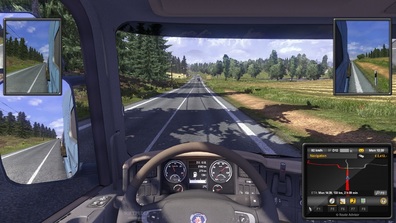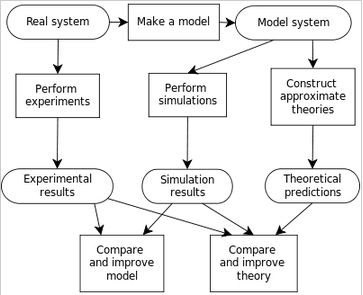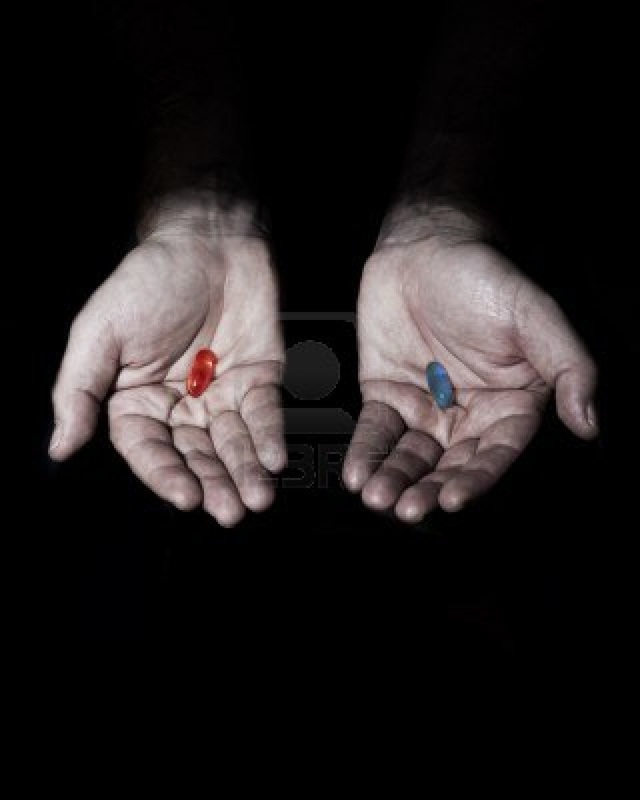Simulation
|
Given what Mr. Macleod did to the RAF Minibus, it's just as well he's not really driving 18 tons of wood from Frankfurt to Dover.
|
Simulation is the imitation of a real system. Using simulation we can investigate the properties of that system:
Simulations employ two key concepts
|
Creating a simulation
The first part is a process of analysis and abstraction of the real environment that you wish to simulate. Analysis works out how objects behave in the system and abstraction removes the unimportant aspects of the environment and behaviour to focus on the key elements.
These are then modelled as objects with behaviours and attributes.
A simulation is created which reproduces these attributes and behaviours - together with the interactions between objects. Once these are modelled the computer simulates the action of time to produce a state history - the changes of state from moment to moment.
Queues form a big part of the account of simulations in your textbook. As you will see all of the examples in the chapter are of some kind of queuing system. In more complex simulations, queues are one part of the overall interplay between objects.
These are then modelled as objects with behaviours and attributes.
A simulation is created which reproduces these attributes and behaviours - together with the interactions between objects. Once these are modelled the computer simulates the action of time to produce a state history - the changes of state from moment to moment.
- An Activity is a process which persists over time-frames
- An Event is a change of state in a single time-frame
Queues form a big part of the account of simulations in your textbook. As you will see all of the examples in the chapter are of some kind of queuing system. In more complex simulations, queues are one part of the overall interplay between objects.
Modelling reality with random number generators
Are you living in a simulation?Summarised by the Huffington Post
Our universe may in fact be a computer simulation, former Astronomer Royal Lord Martin Rees has said. Speaking at the Wired 2013 conference in London, Rees said that in a "post-human" world, it would be possible - perhaps even likely - that simulations on the scale of worlds or universes could be created. Indeed, a thought experiment has long held that if such a thing were possible, it is arguably more likely mathematically that we're inside one of the many simulations and not the single 'real' universe. Some 'evidence' is here |




